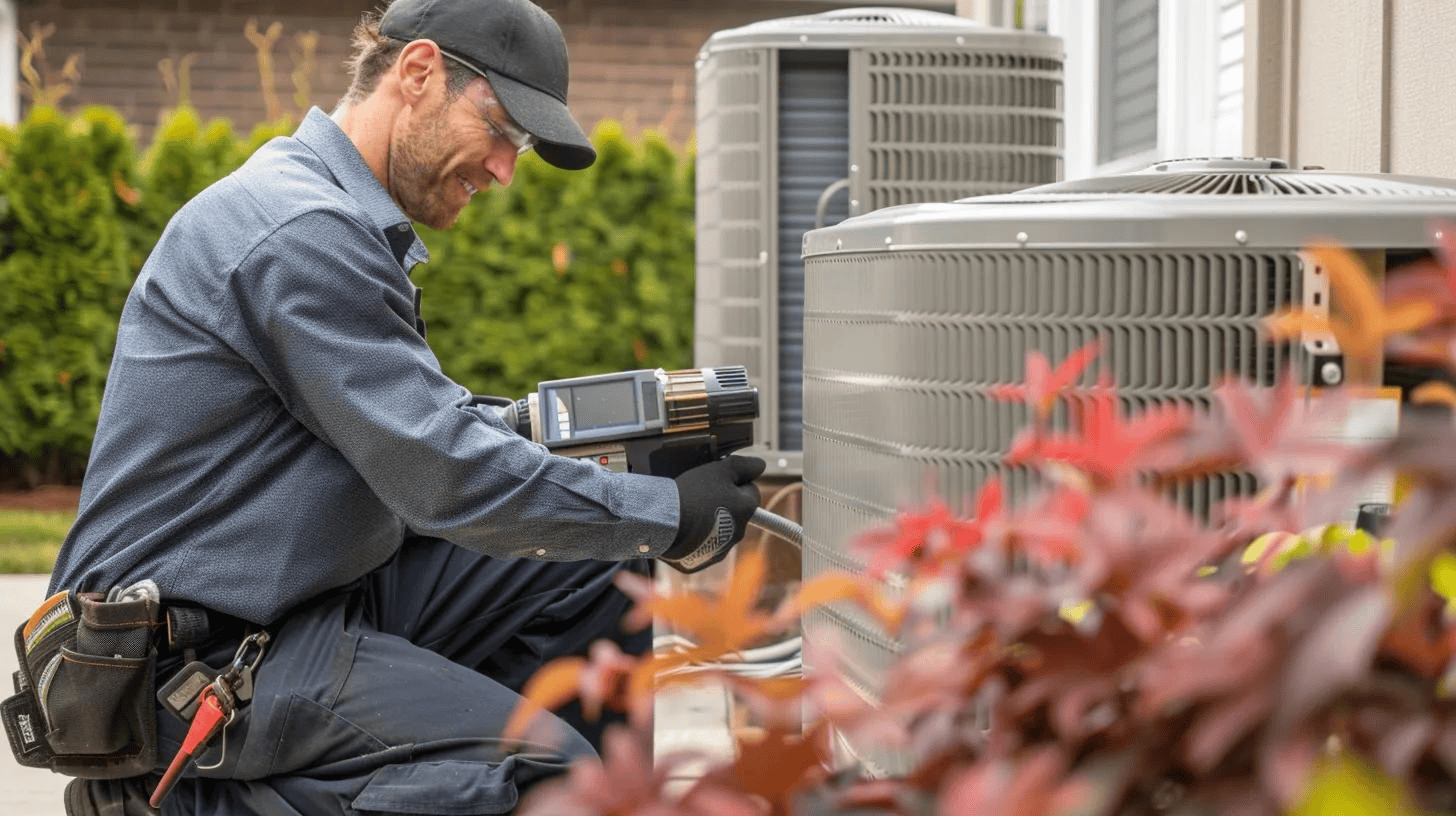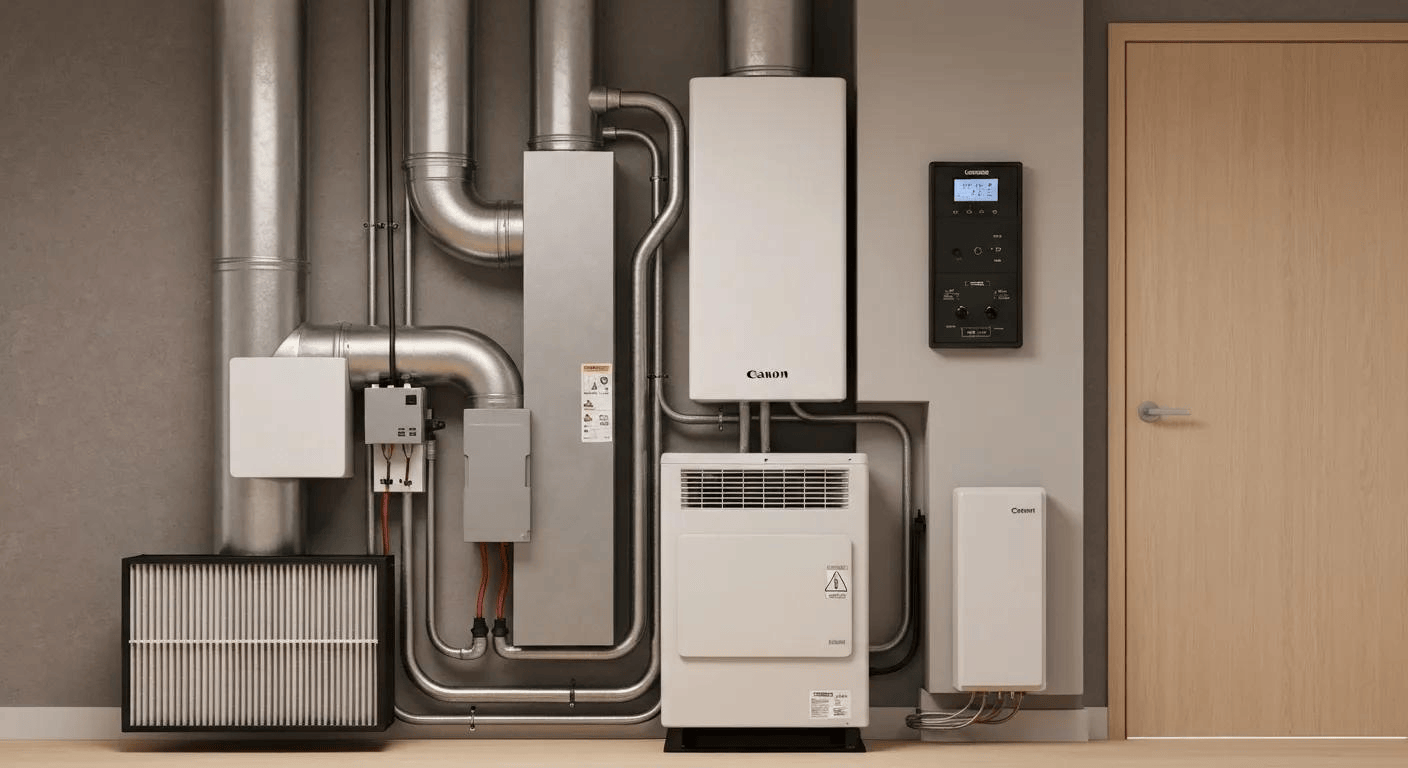When your heating system stops blowing hot air during a chilly morning in Blue Ridge, it's more than just a slight inconvenience. It disrupts your comfort, affects your daily routine, and can make your home feel colder than it should. Most residents expect the heat to come on with the press of a button, so when that doesn’t happen, it creates frustration fast. No one wants to deal with a freezing house right when they’re getting ready for work or helping kids get out the door to school.
Understanding why your system might stop pushing out warm air can help you respond quickly. In many cases, the issue isn’t a complete breakdown, but a buildup of smaller problems that have finally caught up. Here’s a breakdown of some of the most common reasons heating systems stop working as expected, and what can be done to spot them early.
Common Reasons Your Heating System Stops Blowing Hot Air
Several things can disrupt your heating system’s ability to push out warm air. These issues can range from something simple like a thermostat setting to more complex component failures. Knowing what to look for early makes it easier to get help before the entire system shuts down.
1. Thermostat Issues
Incorrect settings can easily cause heating problems. If the thermostat is set to “cool” or the temperature is too low, the system won’t heat the home. Sometimes, a thermostat malfunctions or loses its connection to the heating unit completely. Homeowners occasionally think there's a major issue, but adjusting or replacing the thermostat often fixes it.
2. Clogged Air Filters
A dirty air filter can reduce airflow and prevent heat from reaching the rooms. Over time, dust and debris clog up the filter, forcing the system to work harder than it should. When airflow becomes restricted, the system might start blowing cool air or shut down as a safety measure. Filters should be replaced regularly depending on the type, usually every one to three months.
3. Pilot Light or Ignition Problems
Older heating systems use a standing pilot light while newer ones typically have electronic ignition. If the pilot won't stay lit or the ignition fails, the burners won’t turn on to create heat. You might still have airflow, but it will be cold. In these cases, a faulty thermocouple, dirty burner, or gas supply issue can be to blame.
4. Broken or Worn Heating Elements
Electric heating systems use specific elements to warm the air. If one of these stops working, you’ll notice reduced heat or none at all. Signs of a faulty heating element include air blowing that feels room temperature no matter how long the system has been running. Unlike thermostat or filter problems, this typically requires a more specialized repair.
One Blue Ridge homeowner had a heating issue that turned out to be a combination of a dirty air filter and a weak thermostat battery. It didn’t take much to get the system running again, but the lack of hot air caused several uncomfortable mornings before it was addressed.
Keeping these common issues in mind can help you avoid a cold surprise. Whether it’s a basic setting or a failing component, the sooner it’s identified, the easier it usually is to fix quickly and affordably.
Troubleshooting Tips for Homeowners
Before scheduling heating repair in Blue Ridge, there are a few simple checks you can make on your own. These steps don't require tools or technical know-how, and they can sometimes point you in the right direction fast. While they likely won’t fix a major problem, they can quickly rule out minor ones.
Here are a few things to look at first:
- Reset or Adjust the Thermostat
Make sure the thermostat is switched to “heat” and set several degrees above the current room temperature. Double check if the programmable mode is set correctly. If it’s battery powered, try changing the batteries. Sometimes what seems like a system failure is just a dead thermostat battery or incorrect setting.
- Inspect the Air Filters
If it’s been a while since the filters were changed, take a look. A clogged or dirty air filter can reduce airflow and cause the system to shut down or blow cool air. Replacing the filter can offer instant results if that’s the issue.
- Check the Pilot Light or Ignition System
For older gas furnaces with a pilot light, look through the viewing window to see if the flame is lit. If it’s out or flickering, that’s a clear sign something is wrong. Newer models with an electronic ignition won’t have a flame, but you may notice a clicking sound or failure to start.
- Verify the Power Supply
Make sure the furnace switch is on. This is usually a light switch located near the unit itself. Also check the breaker panel for any tripped circuits. A flipped breaker can cut off power to the heating system entirely.
If you’ve gone through this list and the problem hasn’t improved, the issue is likely more complex. Electrical faults, damaged elements, or safety shut-offs will need professional tools and experience to diagnose correctly.
When to Call Our Professionals
There’s a line between basic maintenance and a problem that requires trained help. If you’ve already checked the thermostat, filter, power, and ignition, and your heating system still refuses to warm your home, the next step should be contacting our professionals.
Here are a few situations that signal you’ll need professional support:
- The furnace blows cold air no matter what settings you choose
- The system short cycles or keeps turning itself off
- You smell burning, fuel, or electrical odors
- Unusual noises like grinding, banging, or rumbling occur during operation
- The system turns on, but airflow from the vents is weak
Heating systems contain critical electrical and gas components. Leaving issues unchecked can lead to more damage or even pose a safety risk. Our technicians in Blue Ridge have the tools and expertise to identify internal problems, replace faulty parts, and get the system working safely.
If a repair is needed, it’s better to handle it early rather than after damage spreads to other parts of the system. Waiting too long may increase costs or even require a full replacement when a simpler fix would have done the job.
Keeping Your Heating System in Top Shape
Many heating issues are avoidable with regular upkeep. Systems that are inspected and checked yearly tend to have fewer unexpected breakdowns, better airflow, and a longer lifespan. Instead of waiting for the heat to fail, staying ahead of problems can help you avoid a cold house in the middle of fall or early winter in Blue Ridge.
Here’s how to maintain your system with less hassle:
- Replace air filters every 1–3 months
- Keep vents and return ducts clean and clear
- Set a consistent thermostat schedule
- Listen for new or unusual sounds
- Book a pre-season heating inspection in late summer or early fall
Our technicians are trained to spot wear and developing trouble early, including loose wiring, worn belts, and aging motors. It’s better to fix a small issue right away than to wait for it to take down the whole system.
Routine checks also help your system run more efficiently, meaning the heater doesn’t have to work as hard to keep your home comfortable. That leads to smoother performance, fewer surprises, and more peace of mind as the colder months set in.
Ensuring Comfort and Warmth in Blue Ridge
Your heating system plays a key role in keeping your home livable during fall and winter. When something goes wrong, comfort and reliability can disappear quickly. Whether it’s a minor filter issue or a serious mechanical problem, it helps to know what warning signs to watch for.
Homeowners in Blue Ridge can take a few proactive steps to stay ahead of repairs, but even a well-maintained system can sometimes run into trouble. When that happens, trained support can identify what’s wrong quicker and get things back to normal before the cold worsens.
Keeping your furnace in good condition starts with knowing what to look out for. Take small steps when you notice changes—weak air, odd noises, or sudden cold rooms—and don't wait until the issue gets worse. Heating issues don't fix themselves, and early action is often the difference between a small repair and a full breakdown.
If your heating system is still causing problems and leaving your home cold despite basic checks, Woods Family Heating and Air understands the urgency of a fast and reliable fix. Scheduling professional heating repair in Blue Ridge can restore your comfort quickly. For a quick estimate or to book a service visit, please contact us today.








